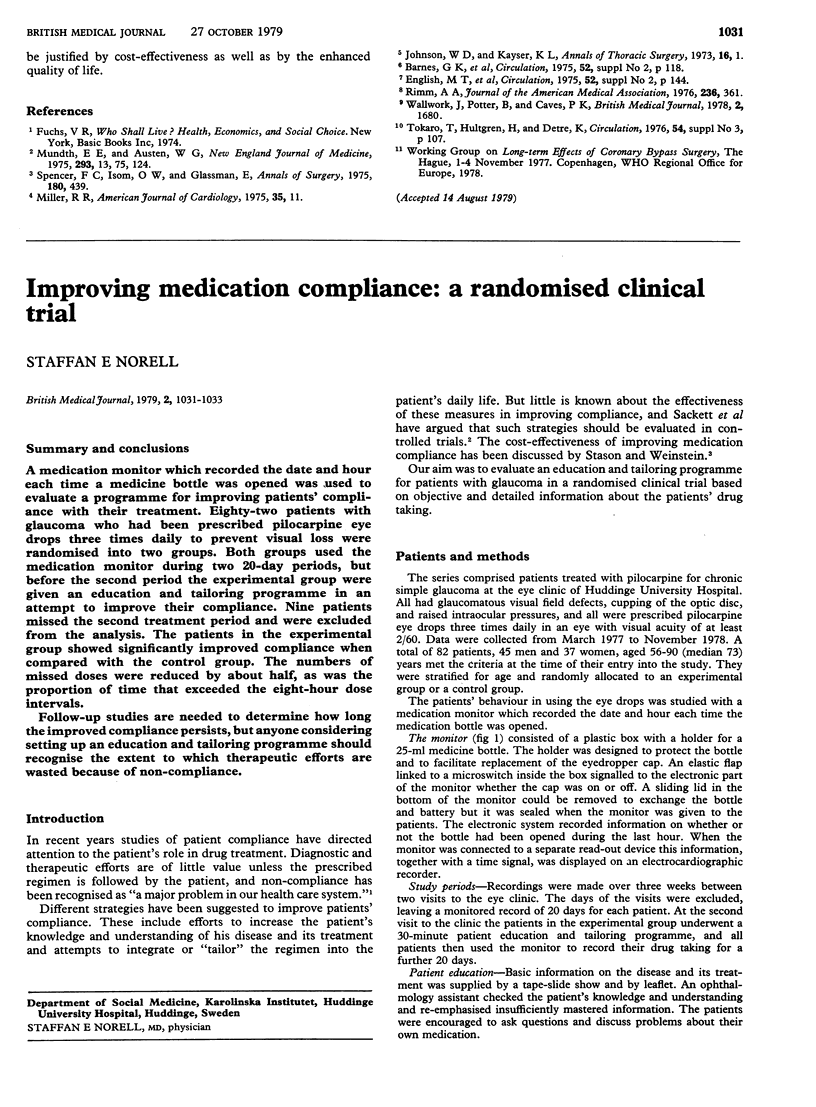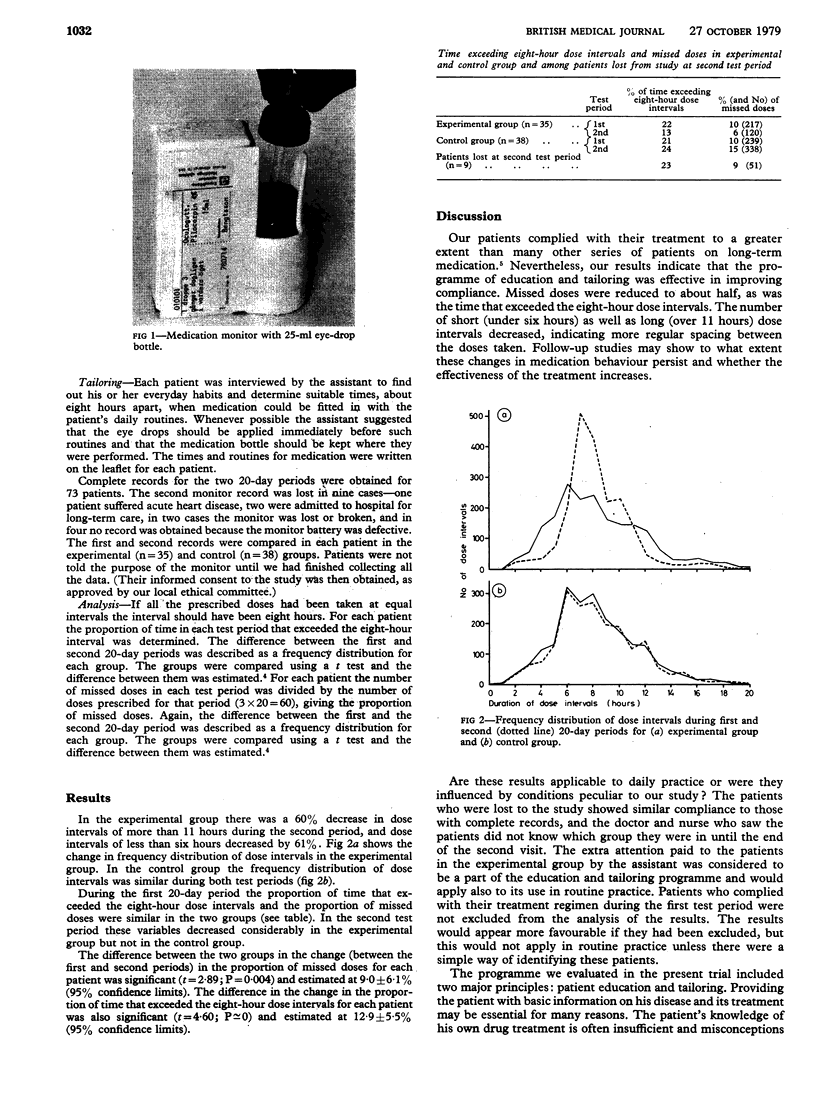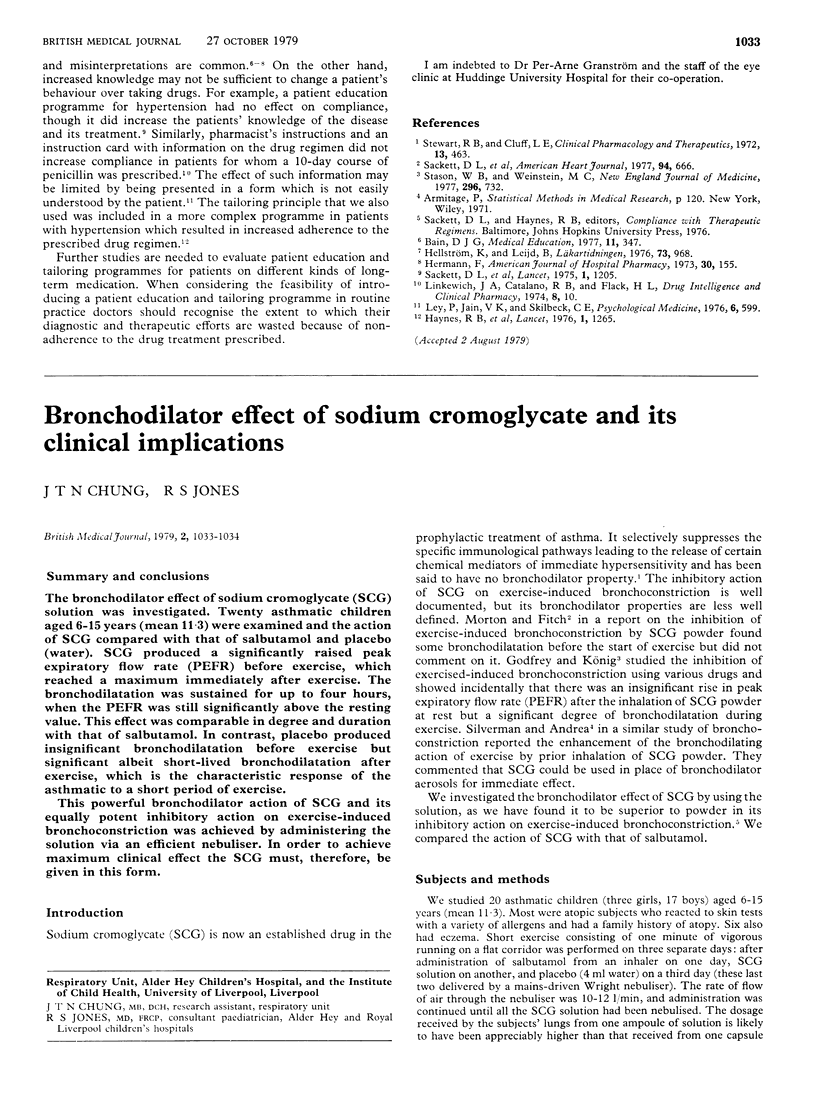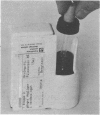Abstract
A medical monitor which recorded the date and hour each time a medicine bottle was opened was used to evaluate a programme for improving patients' compliance with their treatment. Eighty-two patients with glaucoma who had been prescribed pilocarpine eye drops three times daily to prevent visual loss were randomised into two groups. Both groups used the medication monitor during two 20-day periods, but before the second period the experimental group were given an education and tailoring programme in an attempt to improve their compliance. Nine patients missed the second treatment period and were excluded from the analysis. The patients in the experimental group showed significantly improved compliance when compared with the control group. The numbers of missed doses were reduced by about half, as was the proportion of time that exceeded the eight-hour dose intervals. Follow-up studies are needed to determine how long the improved compliance persists, but anyone considering setting up an education and tailoring programme should recognise the extent to which therapeutic efforts are wasted because of non-compliance.
Full text
PDF


Images in this article
Selected References
These references are in PubMed. This may not be the complete list of references from this article.
- Bain D. J. Patient knowledge and the content of the consultation in general practice. Med Educ. 1977 Sep;11(5):347–350. doi: 10.1111/j.1365-2923.1977.tb00626.x. [DOI] [PubMed] [Google Scholar]
- Haynes R. B., Sackett D. L., Gibson E. S., Taylor D. W., Hackett B. C., Roberts R. S., Johnson A. L. Improvement of medication compliance in uncontrolled hypertension. Lancet. 1976 Jun 12;1(7972):1265–1268. doi: 10.1016/s0140-6736(76)91737-2. [DOI] [PubMed] [Google Scholar]
- Hellström K., Leijd B. Vad vet patienter om sina sjukdomar och deras medikamentella behandling. Lakartidningen. 1976 Mar 10;73(11):968–970. [PubMed] [Google Scholar]
- Ley P., Jain V. K., Skilbeck C. E. A method for decreasing patients' medication errors. Psychol Med. 1976 Nov;6(4):599–601. doi: 10.1017/s0033291700018237. [DOI] [PubMed] [Google Scholar]
- Sackett D. L., Haynes R. B., Gibson E. S., Hackett B. C., Taylor D. W., Roberts R. S., Johnson A. L. Randomised clinical trial of strategies for improving medication compliance in primary hypertension. Lancet. 1975 May 31;1(7918):1205–1207. doi: 10.1016/s0140-6736(75)92192-3. [DOI] [PubMed] [Google Scholar]
- Sackett D. L., Haynes R. B., Gibson E. S., Taylor D. W., Roberts R. S., Johnson A. L. Hypertension control, compliance and science. Am Heart J. 1977 Nov;94(5):666–667. doi: 10.1016/s0002-8703(77)80141-5. [DOI] [PubMed] [Google Scholar]
- Stason W. B., Weinstein M. C. Public-health rounds at the Harvard School of Public Health. Allocation of resources to manage hypertension. N Engl J Med. 1977 Mar 31;296(13):732–739. doi: 10.1056/NEJM197703312961307. [DOI] [PubMed] [Google Scholar]
- Stewart R. B., Cluff L. E. A review of medication errors and compliance in ambulant patients. Clin Pharmacol Ther. 1972 Jul-Aug;13(4):463–468. doi: 10.1002/cpt1972134463. [DOI] [PubMed] [Google Scholar]



